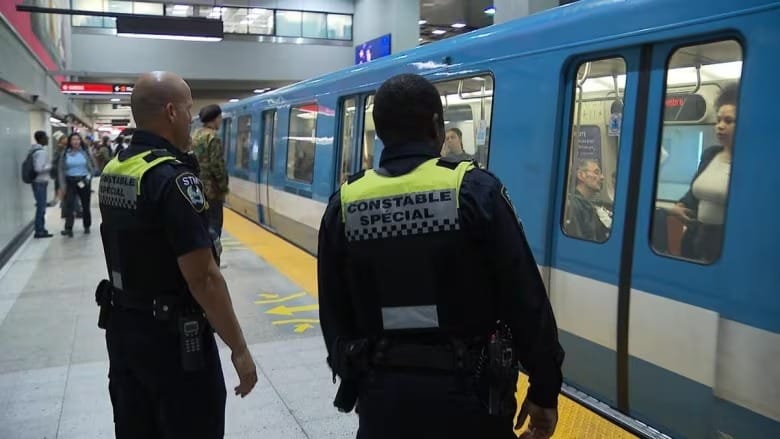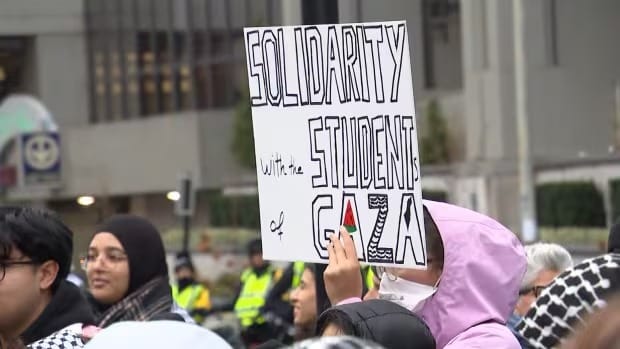Special constables may need more weapons to deal with violence in Metro, union says
Union says it hasn't consulted members yet to see what they think of expert's recommendation

The union representing special constables patrolling Montreal’s Metro system says it might be time to arm its members with firearms and stun guns due to rising violence.
In a statement released Tuesday, the Fraternité des constables et agents de la paix de la STM (FCAP) expressed concern over increasing violence, saying its members are operating "under constant pressure." The union, affiliated with the Confédération des syndicats nationaux (CSN), argues that limited equipment and access to information make these situations even more dangerous.
The FCAP commissioned Mario Benriqué, a retired officer from the Sûreté du Québec, to assess the situation. His preliminary report recommends that special constables be armed with guns and stun guns and be given access to the Centre de renseignements policiers du Québec (CRPQ), a confidential police database.
The union clarified that it hasn’t adopted an official stance on these recommendations yet. It plans to consult its approximately 160 members before taking a position, and if the recommendations are accepted, the implementation process will be gradual.
Evolution from Inspectors to Constables
Before 2021, Metro patrollers were referred to as inspectors. The shift to special constable status granted them broader authority, including the power to make arrests and transfer individuals to police custody.
Last year, special constables began using cayenne pepper gel—a more targeted version of pepper spray—along with batons. At the time, the Société de transport de Montréal (STM) described the pepper gel as a "de-escalation tool" for use only in "exceptional circumstances," though its introduction raised concerns among advocates for people experiencing homelessness.
Kevin Grenier, president of the FCAP, stated that special constables are expected to handle around 55,000 interventions in 2024, averaging 150 per day. He cited recent incidents, including a fatal stabbing at Guy-Concordia station, to illustrate the increasing dangers in the Metro network.
Grenier emphasized that both the victim and the accused in the stabbing case were known to police. If the constables had access to the police database, it might have helped during the intervention.
"We’ve also dealt with three incidents in the Metro tunnel involving armed individuals experiencing mental health crises," Grenier noted, adding that some agents were injured in those confrontations. "In one case, after neutralizing the individual, we discovered the weapon was an air gun."
CBC News has contacted the STM for comment but has not yet received a response.
The STM previously stated in 2021 that "at no time will inspectors be equipped with firearms."





